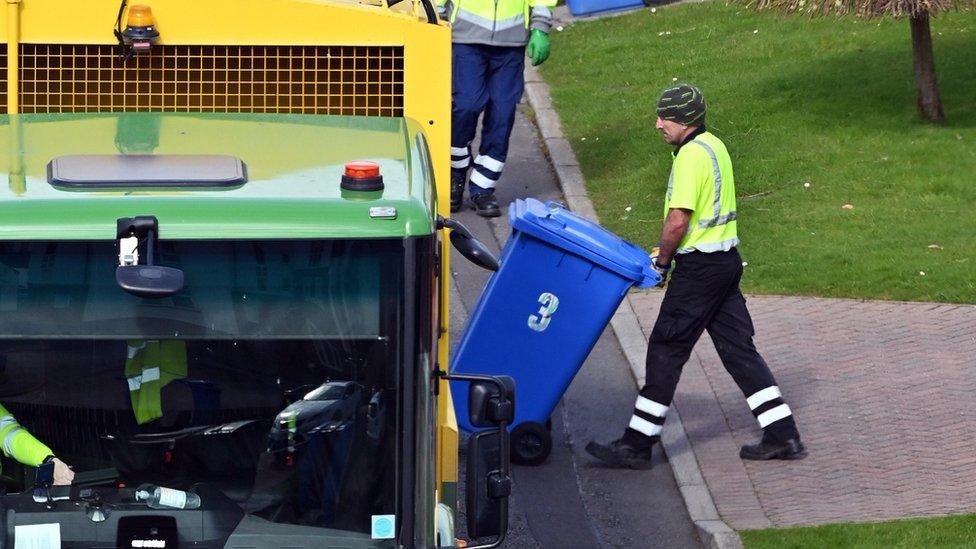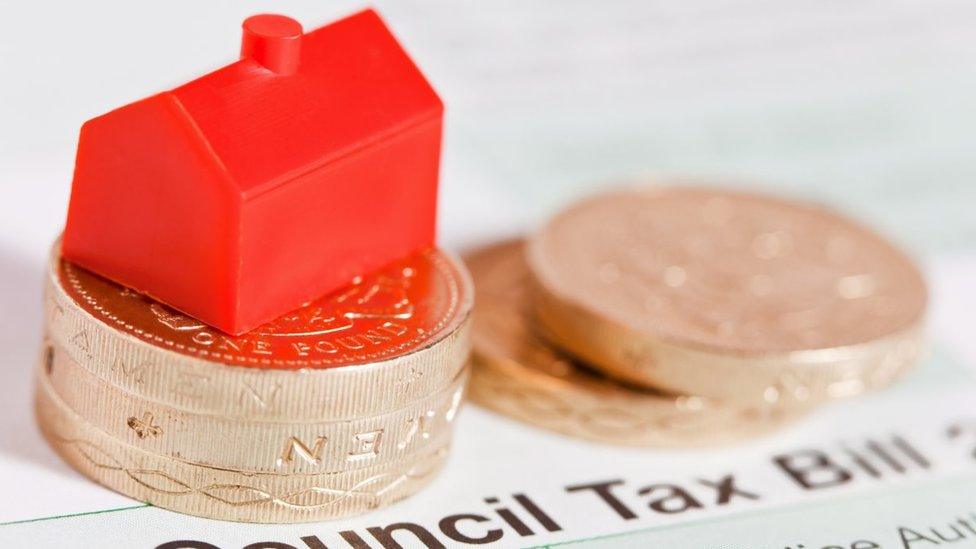Call for long-term funding deal for councils after Covid
- Published
- comments

The Accounts Commission says councils need financial security to plan services adequately
Scotland's councils need a multi-year financial settlement in the wake of coronavirus in order to be sustainable, a report has said.
The Accounts Commission has examined local authorities' responses to Covid.
While it praised the quick shift to new methods of working, it highlighted the unequal impact of Covid-19.
It said the most vulnerable, minority groups and women were most affected by changes brought about by the pandemic.
They included carers who could not access respite care and people with learning disabilities who were unable to access critical services and support.
Those receiving care at home and school children, whose education was disrupted, were also badly affected.
The Accounts Commission, which reports on the performance of local government, said it was vital that councils have longer-term financial certainty, warning the funding situation beyond 2021 looks unclear.
It also said that while the Scottish government provided financial support to councils to assist in managing the net cost of Covid-19, much of this funding took the form of one-off payments.

The proportion of council funding coming from council tax has been falling
Fourteen years ago, when the SNP first took control at Holyrood, a council tax freeze was meant to be a temporary measure while a way to replace the council tax was found.
But replacing the council tax proved difficult, with the basic council tax rate not rising anywhere in Scotland between 2007 and 2017.
Since then, councils have been able to put it up within agreed limits, although some still opted for lower rises and freezes.
Earlier this year, all 32 of Scotland's local authorities again decided to freeze council tax rates at last year's levels.
In exchange for not putting up taxes, councils will receive a cash equivalent of a 3% council tax increase from the Scottish government.
'Climate of financial uncertainty'
Elma Murray, interim chairwoman of the commission, said the "stark reality" was that some council services "won't restart, and some services will have to be delivered differently".
She added: "Underpinning this is the increasingly urgent need to address inequalities throughout Scotland's communities.
"For councils this is made more challenging because they continue to operate in a climate of significant financial uncertainty, which must now be addressed."
Gail Macgregor, of the umbrella organisation for Scottish local authorities Cosla, said in response to the report that councils had reacted quickly to address the "unprecedented challenges" created by the pandemic.
She said the report was right to point out that "many challenges remain significant, and these are made more urgent by the multiple impacts of Covid-19 on communities and services".
She added: "However, no-one is better placed to deal with these challenges than Scotland's councils and as always we will rise to the challenge.
Ms Macgregor added that the report was "very clear" that local authorities require long-term financial certainty.
She said this would be welcome, and "would enable us to do an even better job than the one we are rightly being praised for today".
The Scottish government said it would provide councils with a total core funding package worth almost £11.7bn, including revenue funding of almost £11.1bn and support for capital expenditure of more than £600m.
In addition, councils will receive a further £259m of non-recurring Covid-19 support.